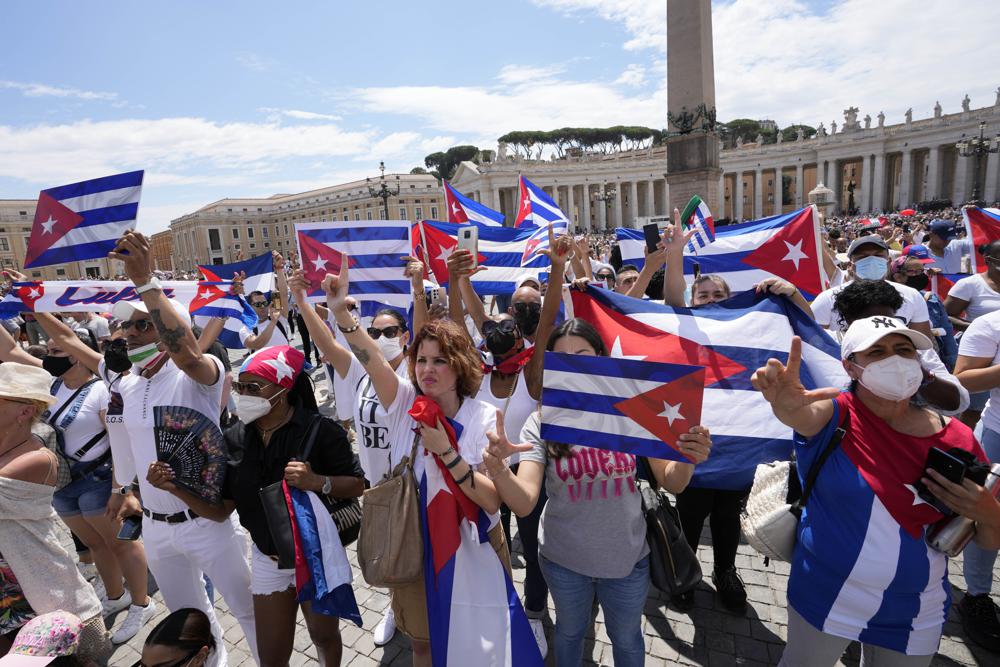Pope tells people they have to switch off from ‘frantic running around’
The pope advised people to ‘learn how to take a break’ this summer

Your support helps us to tell the story
From reproductive rights to climate change to Big Tech, The Independent is on the ground when the story is developing. Whether it's investigating the financials of Elon Musk's pro-Trump PAC or producing our latest documentary, 'The A Word', which shines a light on the American women fighting for reproductive rights, we know how important it is to parse out the facts from the messaging.
At such a critical moment in US history, we need reporters on the ground. Your donation allows us to keep sending journalists to speak to both sides of the story.
The Independent is trusted by Americans across the entire political spectrum. And unlike many other quality news outlets, we choose not to lock Americans out of our reporting and analysis with paywalls. We believe quality journalism should be available to everyone, paid for by those who can afford it.
Your support makes all the difference.Pope Francis has advised people to switch off from the stresses of modern life.
During his weekly Sunday noon address at St. Peter’s Square, he encouraged the hundreds of people in the audience to regularly turn off their mobile phones so that they can “truly rest”.
It was his first public appearance since returning to the Vatican last week after an 11-day stay in hospital, where the 84-year-old had surgery to remove part of his colon.
When recovering in Rome’s private Gemelli Polytechnic hospital, he had addressed crowds from the balcony of his 10th-floor room. He had lauded the “precious benefit” of universal free healthcare.
In his most recent address, Pope Francis did not mention his recovery from surgery but stressed the value of “rest, contemplation and compassion.”
He added: “Let’s take advantage of summertime for this.
“Let us put a halt to the frantic running around dictated by our agendas. Let us learn how to take a break, to turn off the mobile phone.”
During his 14-minute speech, he expressed his concern for people in Germany and Belgium, where more than 180 people have been killed and homes have been completely destroyed by extreme floods.
“May the Lord welcome the deceased and comfort the family members,″ he said.
The Pope also called for the end of civil unrest and protests in South Africa and Cuba.
South Africa has had one of its most violent weeks since the end of apartheid. The recent death toll states that more than 200 people have died in riots that have reportedly been sparked by the imprisonment of former president Jacob Zuma.
Pope Francis acknowledged that South Africans have already been suffering economic and health difficulties caused by the Covid-19 pandemic. He said he was making a heartfelt appeal for efforts for peace and help for those who need it.
Among the cheering public in St. Peter’s Square were around 100 Cuban residents of Rome who displayed a banner in support for anti-government protesters in Cuba.
A week earlier, demonstrations began in Cuba against shortages of food and medicine, and power cuts. Cuba has been subjected to a US economic blockade since 1959. Since then, Cuba has reportedly lost out on £547 billion since the trade embargo was put in place.

Some demonstrators in Cuba have expressed support for president Miguel Díaz-Canel, whose Communist Party has governed the country for 56 years, while some have called for political change.
The recent demonstrations have been the largest in a generation, it has been reported.
Pope Francis said: “I am near to the dear Cuban people in these difficult moments, especially to the families who are suffering more.
“I pray that the Lord help them to build an ever more just and fraternal society in peace, dialogue and solidarity.”
Join our commenting forum
Join thought-provoking conversations, follow other Independent readers and see their replies
Comments